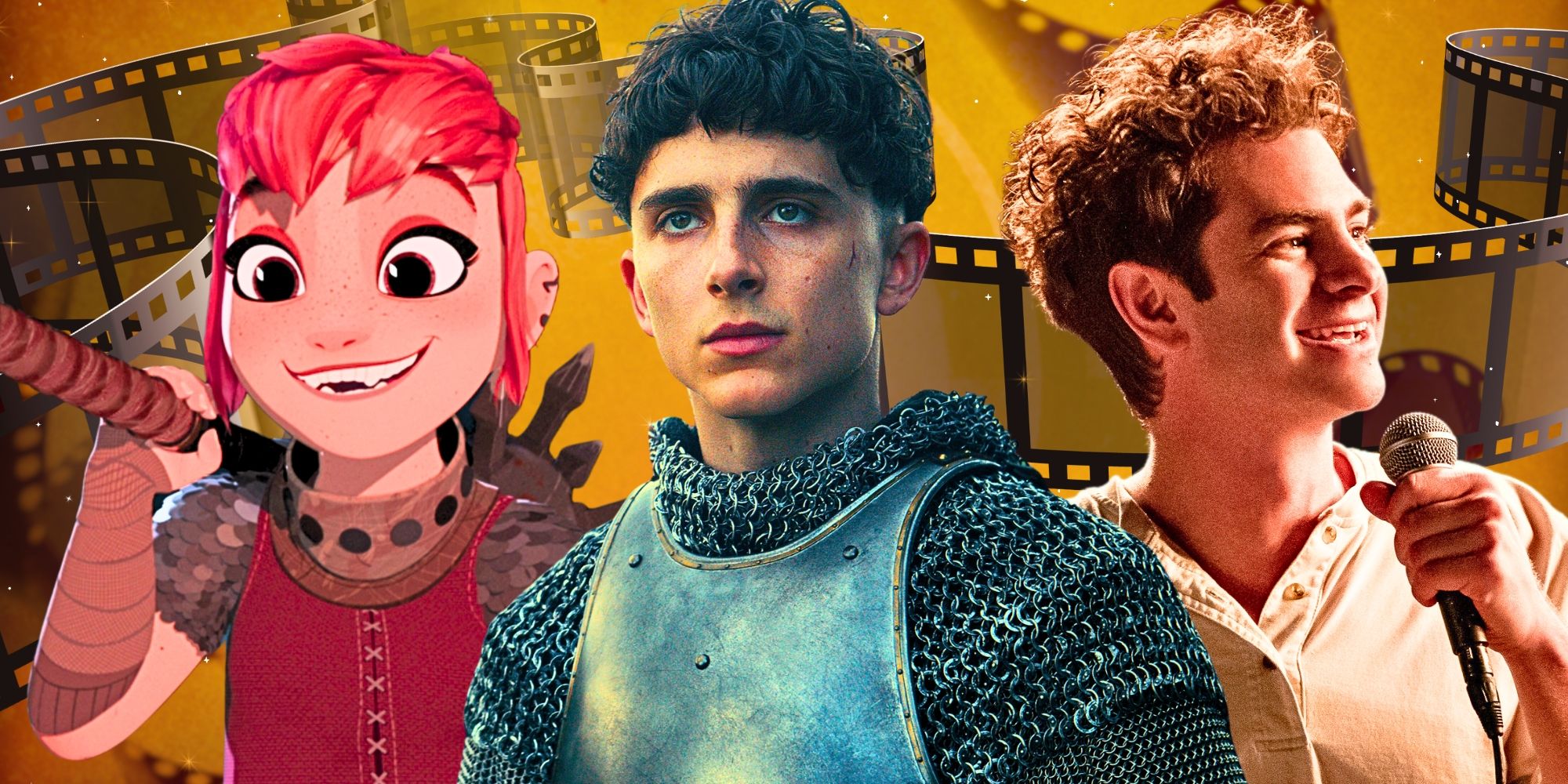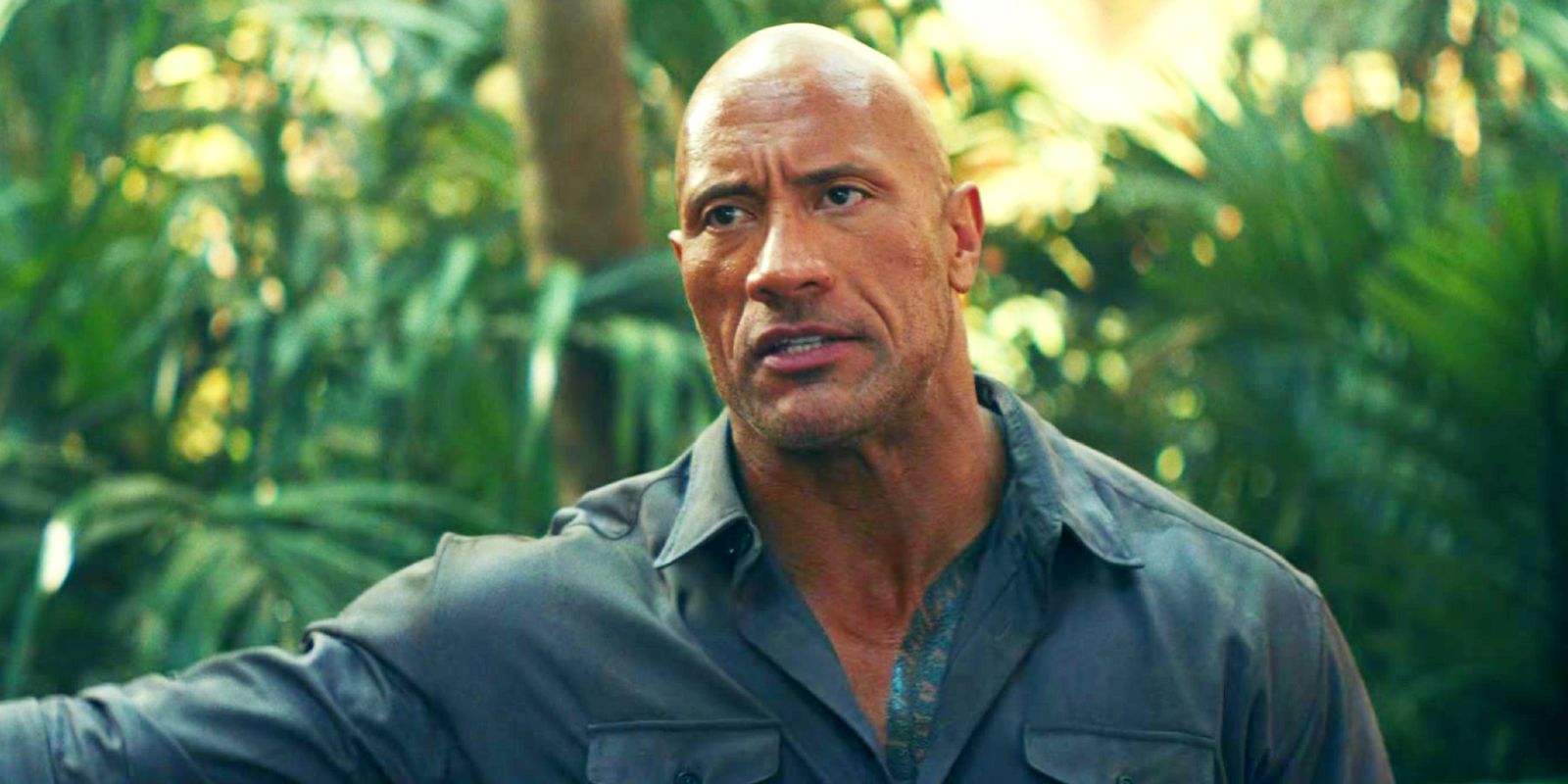Netflix
‘s chief content officer, Bela Bajaria, shares some surprising insights into the streaming service’s approach to movies. Netflix is now the world-leader when it comes to streaming, boasting over 300 million subscribers. The company regularly releases new movies, most recently Back in Action, and these movies often feature massive, blockbuster-sized budgets and major stars. The company’s actual strategy when it comes to film, however, including the decision to not give movies substantial time in theaters, remains somewhat perplexing.
Bajaria now sits down with Matthew Belloni from Puck for his podcast, The Town, shedding light on Netflix’s approach to movies. The interview covers specific projects, like Greta Gerwig’s Narnia movie, but Bajaria also speaks more broadly about the company’s relationship to film, explaining why Netflix operates so differently from traditional movie studios and its streaming competitors. The question of why Netflix has such an aversion to theatrically releasing movies is a major point of conversation, with Bajaria disagreeing that the company’s decision to give Gerwig’s Naria a four-week window of theatrical exclusivity marks a shift in strategy:
First of all, it’s a two-week window on Imax […] I think you want to extrapolate more out of this than it is, but that’s fine. For lots of other filmmakers, we always do bespoke qualifying runs. Everybody wants to feel like this changed something that it didn’t […] I think that having the option for audiences to go watch Narnia in Imax for those two weeks is great. For that movie, for Greta, this totally makes sense.
Belloni then asks whether a filmmaker like Guillermo Del Toro, who has Frankenstein coming out later this year on Netflix, will be given the same treatment, a question that Bajaria mostly sidesteps:
We’re working with Guillermo and Noah Baumbach, two filmmakers coming back and working at Netflix. They know that they’re going to get a bespoke qualifying run. You have to look at all these incredible filmmakers that we are working with. You want to make a great movie that gets the qualifying run, that gets the bespoke treatment, and you want to reach that many people around the world? If you want to make a movie that you want a lot, a lot, a lot of people to watch, which a lot of filmmakers do care about, then we are a great place for that.
Netflix’s “Bespoke” Approach To Theatrically Releasing Movies Explained
The Streamer Does Put Some Movies In Theaters (But There’s A Catch)
Netflix does have a history of releasing select films theatrically, usually with the intention of allowing these films to compete in awards shows like the Oscars. In order for a movie to qualify at the Oscars, it must play in theaters in six select metropolitan areas for seven consecutive days. When Netflix gives one of its films a qualifying theatrical run, however, it’s usually the bare minimum, and it’s usually not highly promoted.

Related
10 Netflix Movies That Deserved A Theatrical Release
Some of Netflix’s best original movies deserved to be watched on the big screen and would have benefitted from a wide theatrical release.
One of the most recent notable examples of this is Glass One: A Knives Out Mystery (2022). The film marked, at the time, Netflix’s biggest theatrical release ever, grossing $15 million in one week in theaters before it landed on Netflix. The decision to give the movie only one week was heavily criticized, as the film earned strong reviews and seemed to have the potential to earn far more due to its crowd-pleasing nature. “It saddens me,” star Daniel Craig recently told The New Yorker about the film’s lack of theatrical support.
Netflix Movie Releases & Cultural Impact
Bela Bajaria Makes A Bold Claim About Oppenheimer
The conversation between Belloni and Bajaria eventually turns to the idea of cultural relevance and the creation of lasting IP, and whether a movie makes as big of a cultural footprint when it goes straight to streaming. Bajaria makes the case that Christopher Nolan’s Oppenheimer, a movie that grossed $975 million at the box office in 2023 as part of the “Barbenheimer” phenomenon, would have been just as big of a sensation had it been a Netflix movie:
We would have done an amazing qualifying run. So many people obviously would have watched it. It was a great movie. And I think it would have had that […] We’re going to totally disagree about this. And here’s the thing: There’s a lot of people who love going to the movies. I love going to the movies. It’s just, we want to make great movies on Netflix. This idea of, everything theatrical is bigger and lasting, you have to think about all those other movies except for the four or five we just talked about.
Belloni pushes back against Bajaria’s stance here, pointing out that half of Netflix’s top 10 movies recently were Warner Bros. films that got theatrical releases with massive marketing campaigns. These theatrical releases, he argues, gave those movies a boost on streaming and sometimes led to the creation of franchises. Netflix’s Carry-On, Belloni states, was a viewership hit, but it probably isn’t starting a franchise. Netflix lacks any strong franchises, and the company’s refusal to embrace theatrical is seen as one reason for this. Bajaria, however, doesn’t see it that way:
It’s much more nuanced than that, than “theatrical makes something bigger on streaming” because I think you have to look at, you mentioned Apple, I’m not sure we’re saying those theatricals made those sort of movies bigger on streaming. […] This is tricky to find other examples because other streamers don’t really release numbers.
So Red One [released by Amazon], that had a big theatrical campaign and then had 50 million viewers in the first four days [on Prime Video, according to Amazon]. We don’t exactly know the definition of “viewers” on Amazon because I’m not sure they’ve told us. But Red Notice [a 2021 Netflix film] in four days got 90 million viewers. [Both had] The Rock. Theatrical versus streaming… I think it’s more nuanced than, “This equals this, this makes it more relevant. If it’s theatrical, then it’s this…”
After Bajaria points out that Netflix invests $18 billion in new movies and TV shows, Belloni points out that one common complaint about Netflix movies is their quality. Netflix makes such vast quantities of content that it can’t possibly ensure a high bar for quality for all of it, the argument goes. Bajaria, though, doesn’t think the company has any problems with quality:
Some of those knocks come from people who are like, Oh, we’re used to the hierarchy. There’s one person on the top and they greenlight everything. That is not how we work as a business, as a culture […]
You can do quality at scale. Elisabetta [Zenatti], who runs Brazil, is in charge of just her originals. And under her, she has somebody who’s just making dramas and somebody who’s just making a handful of movies. If you take the U.S., the way the films are organized, each person is just in charge of their own thing.
What Bajaria’s Cultural Relevance Claims Mean For Netflix
The Company’s Strategy Appears To Be Working
A key problem with discussing cultural impact is how that is actually quantified. Box office is the traditional way of quantifying a movie’s success, and on streaming that’s viewership. It’s hard to believe that Oppenheimer would have made as big of a mark culturally had it had a two-week IMAX run before landing on Netflix. The Nolan film, for example, was still selling out 70mm IMAX screens more than a month into its run. The film dominated the cultural conversation for months, and no Netflix movie has really accomplished that, no matter how high the viewership is.
|
Netflix’s Top 5 Movies Of All Time |
||
|---|---|---|
|
Rank |
Title |
Total Views |
|
1 |
Red Notice |
230.9M |
|
2 |
Don’t Look Up |
171.4M |
|
3 |
Carry-On |
166.3M |
|
4 |
The Adam Project |
157.6 |
|
5 |
Bird Box |
157.4 |
Clearly, though, Netflix’s approach is working. Netflix is winning the streaming wars by a significant margin, with subscriber numbers still climbing. It seems like Belloni certainly has a point, though, that Netflix movies just seem to come and go with little fanfare even when they are, like Red Notice, watched by 230.9 million people. The streamer’s top 5 films, as seen in the chart above, don’t seem to be cultural touchstones like Oppenheimer.
Our Take On Bajaria’s Netflix Interview
Rejecting Theatrical Is A Missed Opportunity
Even though Netflix’s approach to movies is clearly working in terms of drawing subscribers and earning revenue, it can be frustrating from a viewer point of view. Some titles just seem like obvious movies to put in theaters due to their budgets and scope, or the talent involved. Martin Scorsese’s The Irishman (2019), David Fincher’s The Killer (2023), and the two Extraction movies starring Chris Hemsworth all feel like they would have been interesting to see on the big screen, and they could have become box office hits.
It will be interesting to see what happens with Gerwig’s Narnia movie. If it’s a major success, it’s possible more movies will get this treatment in the future. Whether it spurs any meaningful change in Netflix‘s movie strategy, however, seems unlikely.





